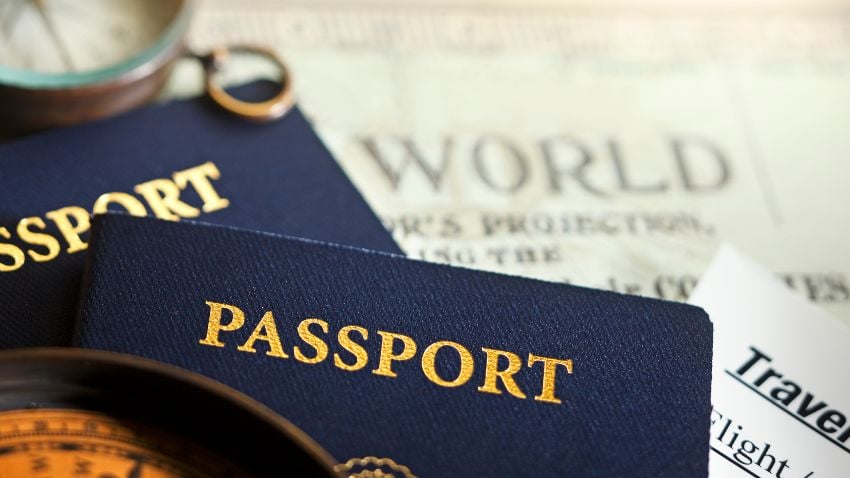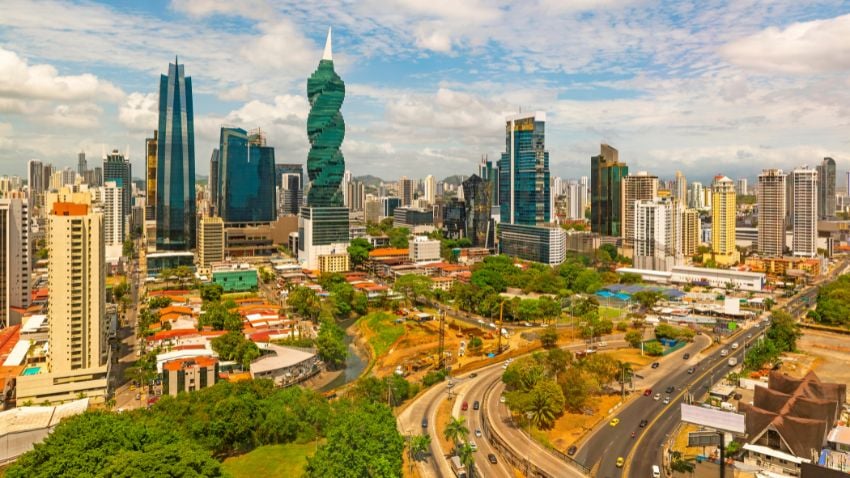Protecting Generational Wealth With Offshore Tangible Assets
Once you spend enough time talking to high-net-worth individuals and family office managers, you’ll notice a pattern: everyone’s obsessed with...

6 min read
Imagine building a successful career for decades, only to find yourself hit by a lawsuit that your insurance cannot cover. Even your domestic LLC, trust, or foundation is not sufficient.
For example, 59.3% of general surgeons have dealt with lawsuits in their careers. This data, extracted from a press release from the American Medical Association, illustrates how risky these professions can be. Lawyers, doctors, dentists, and other professionals face similar challenges.
The thought of getting sued is likely to send shivers down your spine. Your wealth might be at stake, no matter how hard you’ve worked for it. Hoping you won’t get sued, or your domestic wealth protection vehicle will shield the fruits of your labour? That’s not a sufficient option anymore.
No worries, though, as there’s a better way to preserve what’s yours: a proactive strategy that mitigates this risk and even protects your lifestyle and financial future. This strategy–acquiring a second residency–can offer a haven from the fiscal reach of your home country and offer a higher degree of privacy and asset protection.
In this article, we’ll delve into how a second residency can help licensed professionals achieve their career, financial, and lifestyle goals. Let’s begin.
Make sure to grab your complimentary copy of 19 International Strategies To Protect And Grow Your Wealth Abroad and join our newsletter to stay up-to-date with the best news and content from the offshore and expat world every single week.

In this article, you will understand why you need a second residency and how it can help you achieve your financial security
In a world where many professionals adhere to the conventional path of staying rooted within the confines of their home countries, I would like to challenge the norm by shedding light on the potential pitfalls of this traditional approach.
The conventional approach many professionals adopt is to live and work within the confines of their home countries, staying put no matter what. This route implies you only deal with your home nation’s economic, tax, and social systems and rely on local markets for employment, business, and investment opportunities. However, what if your country undergoes a massive recession like the financial crisis of 2008?
Though apparently straightforward, this traditional approach comes with many pitfalls. For example, high tax burdens reduce your net income, not allowing you to save and invest as much as you want.
Apart from income taxes, depending on a single country limits your scope of investment opportunities and hinders wealth accumulation, leaving you exposed to domestic market fluctuations. Furthermore, this approach constrains lifestyle choices and exposure to diverse cultures and experiences.
High tax rates in many countries negatively impact your income and prospects of wealth accumulation. As a high earner, a significant part of your earnings goes toward taxes, affecting your ability to save and invest. Consider these questions:
Have you ever considered what you could do with the money the government takes from you every month?
Would you enroll your kids in better schools?
Would you invest in real estate, crypto and other assets?
The possibilities are almost endless, but direct taxation limits your ability to take advantage of them. Moreover, we cannot underestimate the demotivating effect of high taxes; it can lead to a feeling of working more for the government than for yourself. I’m a firm believer that the fruits of your labour should stay in your pockets, not in the government’s hands.
Sticking solely to domestic investment and career opportunities can be limiting. Many professionals overlook the benefits of global markets and instead go for what’s familiar. It’s common for high earners to stick to doing their jobs and making a lot of money in the process, but to put off investing and wealth creation. Then, when it’s time to invest or purchase property, they often look only at their home country’s market, ignoring the bigger and better deals the overseas market can offer.
This traditional approach is dangerous in today’s interconnected world. The old saying, “Don’t put all your eggs in one basket,” holds immense significance, as your home country's economic downturns and market volatility can negatively impact your wealth and career prospects. Diversification is, therefore, vital to mitigating these risks.
As you can see, limiting yourself to your home country will likely hinder your professional and economic growth. Years pass, and taxes never cease to increase, as does the cost of living and even the lack of safety on the streets. The good news is that the world still remains a huge place with lots of opportunities for those who are bold enough to take action.
If you’re also aware of the limitations of sticking to your home country, read on to find out the benefits of having a second residency.
One of the most interesting reasons to get a second residency is the significant value for money it offers. While owning a top-notch property seems unattainable in major Western cities like London, Toronto, and New York, other regions like Latin America offer the same at a much better price point. Plus, this typically extends to other expenses like groceries, education, and healthcare.
For example, I live in Panama, and recently, my whole family (my wife, two kids, and I) came down with a severe stomach virus. All four of us needed to seek medical attention. Four cases in the emergency department, private hospital rooms, all the tests, and everything else set us back less than $1,000 USD in total.
A second residency may offer substantial benefits such as low taxes and exemptions unavailable in your country. For instance, Panama imposes no wealth, inheritance, or gift taxes, while many Western countries do. This shift allows for greater wealth accumulation and facilitates passing your assets on to the people you care about.
Moreover, when used strategically, offshore foundations, trusts, and corporations can help shield your assets against lawsuits and high taxes. Your hard-earned net worth deserves protection and the potential for growth.
One of the most important perks of second residencies is increased global mobility. First, you have your own country’s passport, which grants you visa-free access to a set of nations. Then, thanks to a second residency, you may have visa-free entry to new countries, complementing your passport. This allows for more business and investment opportunities in different regions all over the world.
Another interesting aspect is that a second residency gives you a country you can legally call home, so in the case of political or economic turmoil in your home country, you can pack your bags and readily move. I recommend countries with a strong rule of law and stable governance, as they’ll protect you against any unpredictable happenings in your home nation.
Securing a second residency has long-term benefits because it may provide a retirement destination with favourable conditions or a safety net against unforeseen circumstances. Think of all the foreigners living in your country who earn Western salaries, and then, when it’s time for retirement, they return home to enjoy a more comfortable lifestyle.
If you come from a Western country, you can do something similar; namely, you earn money and then use it in a country with a lower cost of living, which will likely allow you to live almost like a king.
Plus, by wisely placing your money in countries where your money is protected, your kids and spouse will inherit your wealth without much difficulty.
The appropriate second residency will offer you many benefits beyond low taxes and asset protection. You might choose a country where you can enjoy better weather, more affordable, high-quality real estate, and cost-effective healthcare. Second residencies will open the doors to a lifestyle in which you can get more value for your money, thereby enhancing your quality of life.

The easiest way to achieve residency in Panama is through the Friendly Nations Visa program
Acquiring a second residency might look like a bold move, but financial prudence and diversification are essential in helping you keep more of what you work so hard for. Furthermore, this strategy will give you access to varied experiences, broader horizons, and, overall, a richer lifestyle.
In our interconnected world, issues such as social unrest, economic downturns, and lack of safety are legitimate concerns that should also act as a wake-up call. Perhaps you have a high income, but confiscatory taxes limit your financial and personal growth. That's why second residencies are more than just an escape; they’re political insurance. Regardless of global events, you can be prepared and proactively protect your loved ones.
Designing the lifestyle of your dreams is a beautiful yet complex endeavour. When looking for a second residency and a long-term plan for your wealth, you must consider factors such as your aspirations and lifestyle preferences. There’s no one-size-fits-all solution, but you can pick the one that resonates most with you. Each country has its own charm; whether you’re looking for wealth protection or purchasing a beautiful home, you can find a place that best suits your specific needs.
Contrary to popular belief, having a second residency and a plan-B is perfectly legal. Of course, it’s not free of headaches and complications along the way. When you do your due diligence, it’s normal to face feelings of uncertainty and doubt. However, with the right guidance and detailed planning, you can protect yourself and your loved ones while staying compliant and free from legal entanglements.

By understanding the different residency types and their requirements, you can navigate the application process more efficiently
In essence, highly paid professionals can greatly benefit from second residencies on multiple fronts. From tax optimization to estate planning and lifestyle, this approach helps with avoiding many of the problems Western countries impose on those providing great value to society with their profession.
It’s true that getting a second residency may come with multiple obstacles along the way, but the efforts will be worth it. I hope this article has shed some light on how you can keep the fruits of your labour where they belong – in your pockets.
If you want to go one step further and make this a reality, contact me, and I’ll see how I can help you find the second residency that best suits your needs.
If you want the best intel from the expat world, including profitable offshore opportunities, little-known tax-saving strategies, and hard-won insights on immigration, passports, and Plan-B residencies, all delivered to your inbox every single week, then join our daily correspondence, EMS Pulse®. Currently enjoyed by over 84,000 expats and expat-hopefuls worldwide. Fill in the form below to join our newsletter free:

Written by Mikkel Thorup
Mikkel Thorup is the world’s most sought-after expat consultant. He focuses on helping high-net-worth private clients to legally mitigate tax liabilities, obtain a second residency and citizenship, and assemble a portfolio of foreign investments including international real estate, timber plantations, agricultural land and other hard-money tangible assets. Mikkel is the Founder and CEO at Expat Money®, a private consulting firm started in 2017. He hosts the popular weekly podcast, the Expat Money Show, and wrote the definitive #1-Best Selling book Expat Secrets - How To Pay Zero Taxes, Live Overseas And Make Giant Piles Of Money, and his second book: Expats Guide On Moving To Mexico.

Once you spend enough time talking to high-net-worth individuals and family office managers, you’ll notice a pattern: everyone’s obsessed with...

On December 14, 2025, José Antonio Kast, a right-wing politician, was elected President of Chile, receiving 58% of the vote. Kast's clear victory...

Dedicated entrepreneurs who want to protect their wealth and establish a foundation for future generations see offshore structures, such as trusts,...